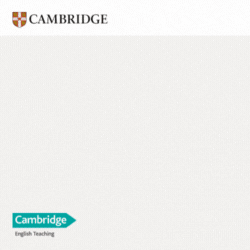Last week, the Innovative Research Universities (IRU) marked its 20th Anniversary. To celebrate, it launched a publication highlighting member impact.
Since July 2003, the IRU has influenced higher education public policy and the thought leadership space. With member universities among the first nationally to establish schools of Modern Asian studies, they are key shapers of the conversation driving Australia’s engagement with Asia.
Through a revised 2022 strategic focus, Executive Director Paul Harris identified the IRU pillars for initiatives as; “supporting student success and equity, supporting young Indigenous researchers and strengthening partnerships in India and the Pacific.”
IRU international highlights include:
- Member universities had 26,631 international students enrolled in 2003. Fast forward to 2021, this has grown to 43,002.
- The 1,093 international co-publications in 2003 have accelerated to 5,888 annually.
- There are 4 international campuses among the group and a range of TNE delivery partners and models.
- In 2022 and 2023, Western Sydney University was ranked number one in the world in the Times Higher Education (THE) Impact Rankings.
With the international flavour in mind, below are a few snapshots from the birthday publication acknowledging the group’s global progression.
The IRU has facilitated partnerships across education and research since the 2005 signing of an MoU with the then ‘1994 Group’ of UK Universities.
Establishing a European Union Centre in 2005 and with EU funding for student exchange in environmental sciences, student exchange has long underpinned IRU collaborations.
From 2014 the IRU created the Scholars in Asia program, providing study abroad and internship opportunities for students in China, India, and Cambodia. In the same period, early career researchers were mobile to Thailand. In 2018, an MoU signed with the French Embassy enabled internships through student mobility.
An MoU with the Malaysia Research University Network (MRUN) in 2014 bought to life a partnership delivering 4 collaborative teaching and learning projects, funded a further 11 research projects and published a report on the implications of digital learning.
The 2018 IRU International Group Pakistan Project, while a COVID-19 disrupted engagement, has enabled:
- An IRU partnership with the National Business Education Accreditation Council (NBEAC).
- Engagement with schools in Pakistan to raise the profile of IRU members through partnership with Initiate Learning.
- An IRU delegation to Pakistan, meeting senior officials at leading Pakistani universities and the Australian High Commissioner and senior officials from Austrade and the Department of Home Affairs.
- Formal connections with universities in Pakistan, through Documents of Understanding, degree articulation agreements, and research partnerships.
The publication also showcases impact case studies of members, with diverse examples of cutting-edge research to impact cyclone safety in the Pacific, support eco-tourism in the Philippines, Indonesia and Thailand, enhance sustainable agriculture in South Asia and track infectious disease spillover alongside partners in North America and Europe.
An example of global and cultural insight is the equity and access-focused project, Leading the way for Māori and Pāsifika students.
Queensland is home to Australia’s largest Māori and Pacific Islander population, a community often underrepresented in higher education. In response, Griffith University has focussed on pathways and building student opportunities through the Māori and Pāsifika Legacy Education Achievement Dream (LEAD) and Pathways in Place (PiP) programs.
Following changes to Australian citizenship requirements, the LEAD program facilitates Pacific Islander students’ understanding and increased opportunity to access higher education through HECS-HELP and Commonwealth-supported places. By demystifying university and building self-efficacy and an understanding of university and career pathways, the program draws on the student’s culture to generate opportunities for the Māori and Pāsifika student population in South East Queensland.
PiP elevates Māori and Pāsifika voices, supporting community-led organisations to provide services and lead collaborative research with Griffith to build knowledge that can positively impact community-led projects focussing on positive outcomes for early childhood care, health, justice, and lifelong education.
… and to end the birthday week celebrations, the IRU signed a partnership agreement with the University of the South Pacific (USP) after USP Vice-Chancellor and President Professor Pal Ahluwalia delivered the keynote address to open the second day of the IRU Senior Leaders Forum at Griffith University. The agreement supports dialogue between USP and the seven universities in the IRU to increase mobility for academic staff and collaboration in PhD programs and research.
It isn’t lost on the Koala that Prof. Ahluwalia completed his PhD at Flinders University, an IRU member institution.
Happy 20th Birthday to the IRU, from The Koala News
Check out the full publication here that celebrates the 20th Anniversary of IRU
The IRU is a network of Flinders University, Griffith University, La Trobe University, James Cook University, University of Canberra, Western Sydney University, Murdoch University

















